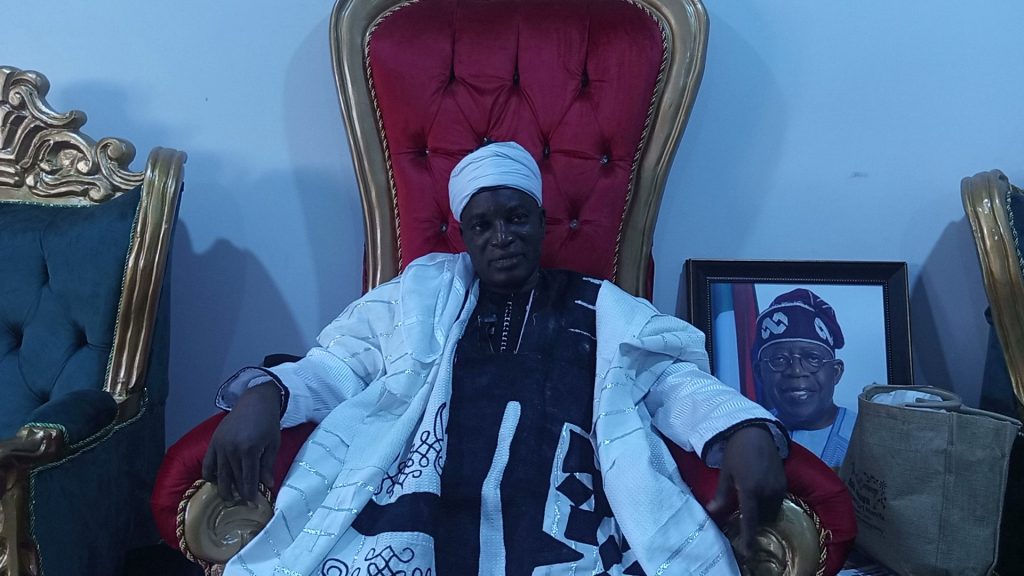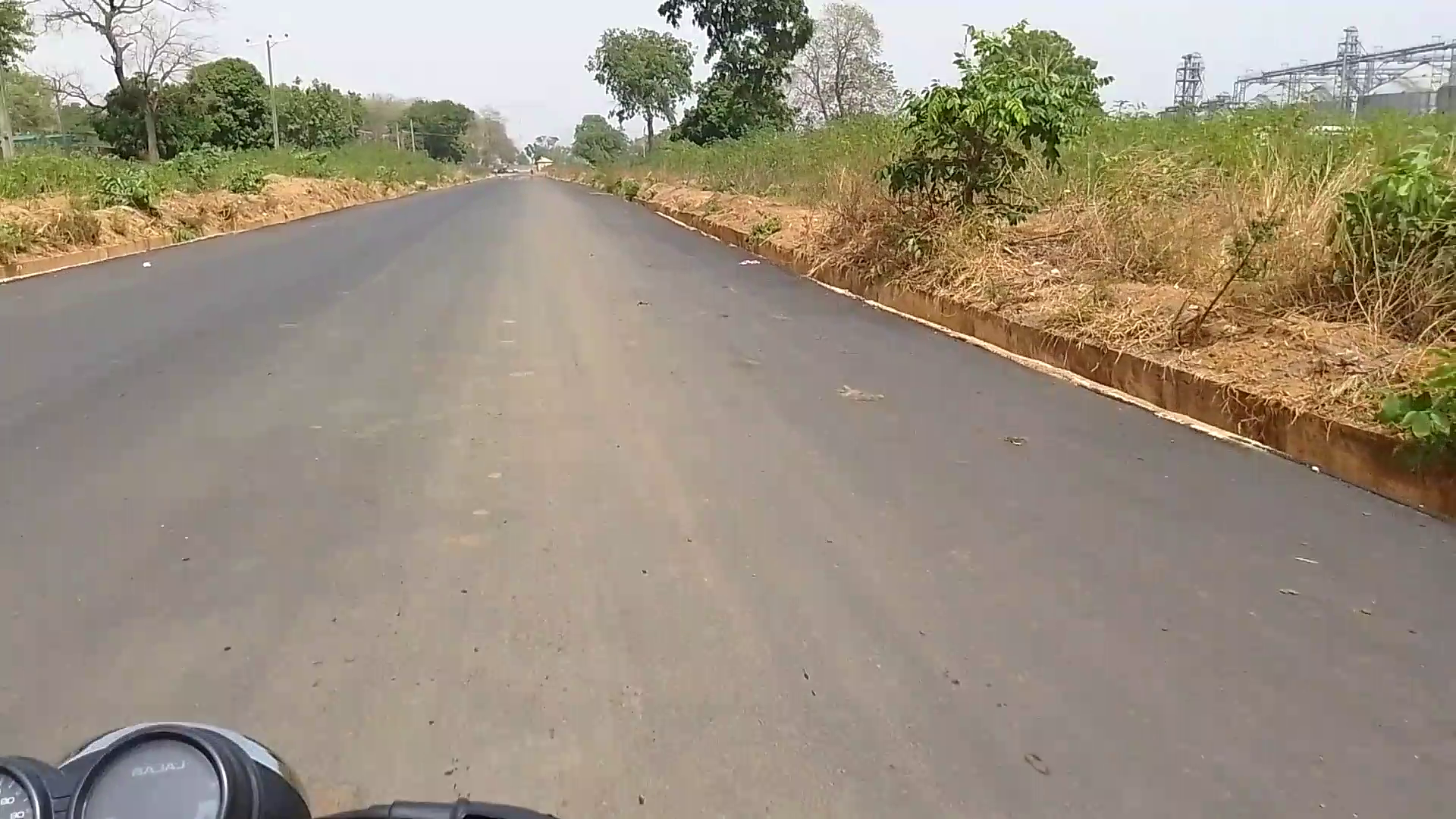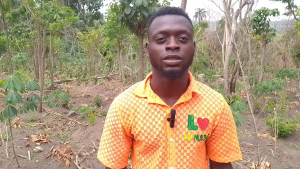The Role Of Community Engagement In Budget Accountability For Health Security In Nigeria
By Adeyemi Adekunle

‘’Our thoughts in my community and other adjoining communities were that his coming in as elected President of the Federal Republic of Nigeria will not only change the landscape of democracy in Nigeria but will be an outstanding beginning for us as Nigerians who have waited long for dividends of democracy’’.
Saidu Danladi told this reporter in Hausa language. This was one of the numerous expectations from the government of President Olusegun Obasanjo when he delivered his inaugural speech on May 29, 1999.
His coming as the President of Nigeria did not only resonate within the federal capital territory, but it also sent resounding ripples of jubilation through the hearts of people in Leleye Bassa and neighbouring communities. Their dreams were laced with hope that, finally, they would be linked to where their hope lies for basic amenities.
For first-time visitors to Pai and its neighbouring communities like Kundu, Gomni, Tukuruwa, Leleye, Leleye Gwari, Tunga Sarki, and Damakusa, the assertion will be simple: as part of the FCT, residents of these communities would be able access the basic amenities that the capital promised.
One of the primary expectations of the people of the Federal Capital Territory (FCT) in Nigeria is the availability of a strong and well-established road network. This network should not only cater to their transportation needs but also ensure uninterrupted access to basic healthcare facilities in their localities.
The people of FCT expect their communities to be adequately connected to the heart of the nation’s power, enabling them to contribute to the development of the region. Moreover, the communities in FCT have long been the agricultural backbone of the region, and therefore, they expect basic health infrastructure that would ensure uninterrupted health security for their residents. The availability of such infrastructure is crucial not only for the well-being of the people but also for the growth and development of the region.
It’s been decades since these communities came under the jurisdiction of the Kwali Local Government (LGA) of FCT, but unfortunately, they still haven’t been able to reap the benefits of democracy. It’s disheartening to see how far removed they are from the progress and development that they deserve.
Abubakar Usman, a native of Leleye Gwari and a farmer for over a decade, expressed the sentiments of his community, saying, “We waited for decades, hoping that our road and abandoned community health centre would finally receive the attention they deserved.”
However, it wasn’t until 2023, amid Nigeria’s general election preparations, that their hopes seemed to materialize. The contract for road construction that will link these communities together and grant them the long-awaited health security they have been yearning for was awarded to KISMATE INTEGRATED RESOURCES LTD, a Jos-based furniture company, but little did they know that they would have to wait and agitate for a year before they would get it.
August 16th, 2022, will forever haunt Saidu Yusuf when tragedy unveils its ugly head on his doorstep. In the dead of night, around 3 a.m., he was awakened by his wife. She was close to her expected delivery date (EDD), and neither of them anticipated that this momentous occasion would occur in the dead of night. A fortnight earlier, his only means of transportation, a motorcycle, had been rendered useless while transporting produce from one of his farms located approximately 20 kilometres away in Dagiri-Bassa.
He found his wife gasping for breath, writhing in pain. Summoning every ounce of strength, he lifts her and sets off in search of a friend with a working motorcycle to transport his wife to the hospital. Twenty anxious minutes later, he was ready with a friend who could help him undertake this critical journey.
The obstacles they faced were too numerous to mention. The nearest primary healthcare centre, Pai, was a mere 10 kilometres away, but it was often inaccessible on Sundays and weekends, with no one available to attend to patients. The only viable option was a treacherous 35-kilometre journey along muddy roads leading to the Abuja-Lokoja highway route that would take them to the University of Abuja Teaching Hospital, Gwagwalada.
In the silence of that night, as they raced against time on those perilous roads, Saidu Yusuf couldn’t help but wonder about the road construction project that was supposed to ease their movement and the Primary Health Center they had been promised. What had become of that promise?
The tale of Pai Road and its neighbouring communities was one of hope, dashed expectations, and the enduring struggle for basic amenities. As dawn broke on that fateful August morning, Yusuf and his wife were just one of many who would bear the consequences of broken promises, the denied voices of underserved communities, and the treacherous kidnapping of budget accountability. All these coupled together left him to navigate an unpredictable journey when they needed help the most.
‘’On a motorcycle with my wife and a friend whom I had to wake up from his sleep, we set out to navigate the treacherous terrain and flooded paths,” Yusuf recounts. “We slipped more than three times, our bodies wracked with pain, while my wife cries for help.”What should have been a 30-35-minute ride to the hospital turned into a gruelling ordeal that lasted an agonizing hour.
And that was just the beginning. Upon our arrival at the hospital, we faced another formidable challenge: the agonizing process of registration, consumed by the bureaucratic rigours of obtaining a card, consumed another hour of our precious time.
The stakes were high, and the urgency was palpable. Yusuf’s wife was in dire need of medical attention, and time was slipping away. The doctor attending to her recommended a cesarean operation as the only hope, but the hours wasted in bureaucratic red tape and the treacherous journey had already conspired against them.
Tragically, it was too late. Despite the doctor’s best efforts, neither Yusuf’s wife nor their unborn child could be saved. The hospital, the symbol of hope and healing, had become a place of despair. In Yusuf’s eyes, it wasn’t just the government that had failed them, but the entire system of governance that should have given them access to a secure health system and thrown budget accountability caution into the air itself.
But this is not just the story of one man’s loss; it’s a story that resonates far beyond the boundaries of Dagiri Bassa. It’s a narrative of countless communities across Nigeria, where promises made during election campaigns often evaporate into thin air once the votes are cast. Here, the promise of a better life, improved infrastructure, adequate healthcare, and a safe education system feels like a cruel mirage.
The Dire Consequence of Budget Accountability, Beyond Realm Of Business

Mohammed Isa, Yusuf’s childhood friend, paints a bleak picture as we sit in one of the dilapidated classrooms of the only public school in their village, where their weekly meetings take place. He speaks with a weariness that can only come from years of unfulfilled promises.
“What we face here feels like a deliberate punishment from those in power,” Mohammed asserts.
“During electioneering campaigns, different political parties come to our community, making promises of building heaven and earth. But the last major project we received was a borehole in 2004 during President Olusegun Obasanjo’s administration.”
The heart of the matter, however, transcends mere infrastructure. Mohammed’s voice grows stronger as he articulates the deeper issues plaguing their community.
“The problem here is not just about our livelihoods,” he insists. “In this community, we have secondary school students who must travel up to 10 kilometres to get to school. On rainy days, we instruct them to stay with friends in neighbouring communities because our paths become flooded with death traps.”
He continues, “No amount of money can convince a motorcyclist to bring you here. We have witnessed accidents in which motorcyclists and students were swept away by the raging waters.”
Dagiri Bassa is a microcosm of a larger, disheartening truth that echoes throughout Nigeria. For many communities, the promises made during election seasons often dissipate once the ballots are cast. Infrastructure crumbles, healthcare remains inadequate, and education becomes a perilous pursuit.
‘’No vehicle comes here because of the bad state of our road. The only sane time for us to sell our crops is during the dry season, but how many food crops can we preserve untill that time? Our farming activities are basically on loans, which the condition of the road did not let us meet up with before another farming season. Year after year, the economic loss that we face is unaccountable,’’ Mohammed explained.
Mohammed’s words reverberate like a haunting echo of systemic neglect in the heart of this reporter. Mohammed’s poignant account reveals a cruel cycle of indebtedness that binds this agrarian community in relentless captivity. Year after year, their farming activities are fueled by loans, yet the unforgiving condition of the road prevents and the abandonment of fending healthcare by themselves further pushed them from reaping the rewards of their toils.
It’s a heartbreaking symphony of struggle as they strive to meet their loan obligations before the onset of each new farming season.
Royalty Appeal, Arousal for Community Engagement

Looking at the luxuriant fields that stretched as far as the eye could see, the Sarkin Pai, Abubakar Sanni Pai, spoke with unwavering conviction. “This land, as you can see, is embedded in a lot of riches and wealth,” he asserted, his voice resonating with the gravitas of generations past. “Let me categorically emphasize that there is no crop you can bring here that will not germinate and no animals that cannot survive here. But lack of access road is killing our farmers here,” he declared with palpable urgency.
The gravity of the situation became increasingly apparent as Sarkin Pai continued to shed light on the dire consequences of the bad road. He underscored the untapped opportunities that lay dormant not only in Pai but in the surrounding communities, which were caused by the non-availability of budget accountability.
“We are aware that the government cannot employ all our sons and daughters,” he conceded, his eyes reflecting a deep concern for his people. “But the basic amenities our children need to stay and be productive should be provided. The motorcycles they use to lift their goods to the markets can only do little.
With the constant community engagement we have been having in this community with other adjoining communities, we believe this will play. a huge part in achieving health security for our people, If the government could attend to the issue of roads, they would have automatically opened this area as an agro-business hub for people even beyond the Federal Capital Territory,” he passionately proclaimed.
Challenges Reveals the role of community engagement

The graded part of the road done before the 2023 general election was 895 meters. According to the analysis done by Abimbola Awoyinka, a quantity Surveyor was taken to the site. Dalhatu Saidu, a seasoned motorcyclist who traverses the Gomni to Pai route, unveils a harrowing tale of the trials and tribulations riders face along this perilous journey. His analysis delves deep into the challenges posed by both the rainy and dry seasons, shedding light on the adversity that plagues these brave individuals.
During the rainy season, Saidu paints a vivid picture of the relentless struggles that riders like him endure. “No matter how perfect you are,” he reflects somberly, “you will fall at least once.” This succinctly captures the unforgiving nature of the route during monsoons. The combination of slippery, mud-laden paths, obscured potholes, and limited visibility due to rain creates an atmosphere of constant peril.
However, a month after the general election, the people of Pai, Leleye Bassa, Leleye Gwari, Damakusa, and Tunga Sarki began extensive community engagement, not only to get basic infrastructures needed but also to hold public office holders accountable. Although being local and arable communities would not be easy to champion, with aggressive engagement among community leaders, farmers association, Markets women, and youth in the affected communities, Kwali Community Engagement Group was born on May 12, 2023.
One of the key roles of the Engagement group was to clear all bottlenecks in achieving health security in Nigeria, most especially in Budget accountability, which for decades has been denied by their successive representatives in the National Assembly (Senate and federal House of Representatives)
Despite being established at a time when things were difficult, that did not stop the communities from engaging at all time
It is the dry season that brings forth an entirely different set of difficulties Saidu laments, “The dust on this road makes it very difficult to breathe in the night.”
This stark observation underscores the health hazards faced by motorcyclists who brave the elements and the choking dust that engulfs them. The road, once a battlefield of mud and rain, transforms into a suffocating dust bowl in the dry months.
What makes matters worse is Saidu’s revelation that “half of the money we make during this time is practically spent on drugs.” Here, he alludes not to illicit substances but to essential medical remedies. The chronic exposure to dust and pollution necessitates frequent medical intervention, further exacerbating the burden of budget accountability on these already marginalized individuals.
Diving Deeper Into Budget Accountability
In achieving budget accountability, this group took a step by looking at the projects allotted to the communities, the contractors, and the agencies in charge the move that changed the narratives
The road project was facilitated by former Federal Capital Territory (FCT) Senator Philip Aduda. The project, budgeted for in 2020, began raising eyebrows due to its handling by the Upper Niger River Basin Development Authority and its award to Kis-Mate Integrated Resources Limited. The purpose of the project was to construct roads and drainage, with a budget allocation of ₦400 million. However, an audit of the project’s financial records reveals a disbursement of only ₦72,089,802.33 in December 2022.
During the heated electioneering campaign leading up to the 2023 general elections, it came to light that less than one kilometre of road was graded. This meagre effort was allegedly orchestrated to appease local communities and secure crucial votes.
Changing the narrative with Community engagement

Through a series of challenging but successful meetings, the efforts put into community engagement have finally begun to bear fruit.
After years of disappointment and neglect, the group was finally able to witness a much-needed transformation. On March 16th, 2024, the long-abandoned road contract finally received the attention it deserved as the contractor resurfaced and returned to the site of the abandoned road project. It’s heartening to see progress being made after such a long wait.
This story demonstrates the importance of community engagement in ensuring budget transparency and accountability at the grassroots level. It highlights the power of collaboration in holding public officials accountable and empowering ordinary citizens to demand access to basic necessities, which are their inherent right and not just a privilege granted by those in positions of power..
This report was produced under the Nigeria Health Watch, Prevent Epidemic and Response Funding Fellowship 2024

A Nigerian trained investigative journalist, who cover various news beats in Nigeria.







